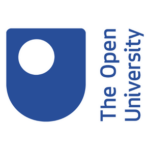
The Open University
Online
Course
Part-time
Learning a language and about how languages work (including English) opens doors to other cultures and communities, and gives you experience of the world that goes deeper than the average tourist trip.
It can also provide a key to the global workplace. By the end of your studies, you’ll understand how language is structured and used in different contexts and be an effective and culturally aware communicator – attributes that are increasingly valuable in today’s global environment.
Key features of the Language Studies (Honours) course at The Open University
– Develops you into a proficient user (Common European Framework of Reference for Languages level C1) of at least one modern language
– Offers the option of a week in France, Germany and/or Spain
– Enables you to understand how language is structured and used in different contexts
Skills for career development
By the time you graduate, you’ll be an effective communicator with an awareness of cultural differences and similarities – attributes that are particularly valuable in an environment of increasing international contact. If you learn about English alongside another language, your study of its structure, history, and place in societies and cultures will greatly enrich and develop your understanding of all aspects of communication.
Certain skills flow directly from your studies like translation, fluent communication in more than one language, the ability to compose and analyse a range of texts, and the ability to work well with members of other cultures and communities. You’ll also develop a broad set of employability skills, including the ability to:
– manage and motivate yourself
– plan, organise and prioritise your work
– manage time and work independently and as part of a team
– evaluate and reflect on your own work
– set realistic objectives and meet your own goals
– understand contemporary global issues and appreciate cultural diversity
– draw together, analyse and critically evaluate information
– use your knowledge about how language works in a range of settings
– communicate effectively, clearly and accurately with others
– put together reasoned arguments and question assumptions
– use information and communication technology (ICT) effectively
– analyse data and undertake research using a range of methods.
Career relevance
As a linguist, you’ll enjoy a broad range of career opportunities directly related to your field: teaching; translating; interpreting; the diplomatic service; the media (publishing, journalism and advertising); leisure, tourism and travel; and working in international organisations and government bodies.
There is also particular demand for language skills in education and more broadly across the economy in client-facing roles. These range from business development, sales, marketing, logistics, tourism to supporting and managing performance in global markets, and to offering services (from health and social care to driving instruction) in an increasingly diverse UK. Studying a language can also be your passport to new life abroad.
Other careers
Employers in all fields value applicants who can communicate well, analyse, evaluate and present ideas and arguments effectively. These skills can be used in work where research or written communication plays a major part such as information work, advertising, marketing, journalism, publishing and public relations.
Many graduate-level jobs are open to graduates of any discipline, particularly in business, finance, management consultancy and the public sector. Some careers may require further study, training and/or work experience beyond your degree. Linguists are particularly adept at relating to other people and being open to different points of view which are highly regarded skills in many professional settings.
The Open University is unique. It is a public research institution that delivers 100% of its courses by online learning. It is the only university of its type in the UK
This course is at level 6 in the UK Qualifications Framework. Level 6 is higher level study often referred to as undergraduate level.
The Credit Accumulation and Transfer Scheme (CATS) is a way to talk about the time and effort a course requires. One credit (or CATS point) equals 10 hours of learning effort.
UK Study Online Scholarship Draw - 1 x £1,000 & 2 x £500 Towards Your Tuition Fees
To register for the scholarship draw, you need to sign up for the ukstudyonline.com newsletter and updates. You can find more details here.
Use these links to view the full rankings (Opens in a new window)
ARTU Ranking (Out of 45 UK universities included in their table)
QS World University Rankings- QS Quacquarelli Symonds rankings data– (CC BY-NC-ND 4.0)